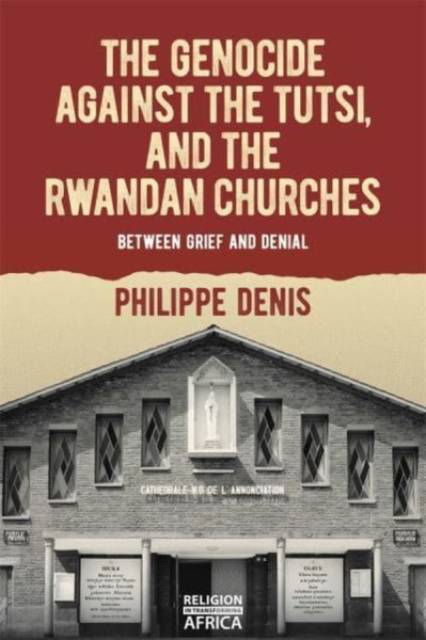
En raison d'une grêve chez bpost, votre commande pourrait être retardée. Vous avez besoin d’un livre rapidement ? Nos magasins vous accueillent à bras ouverts !
- Retrait gratuit dans votre magasin Club
- 7.000.000 titres dans notre catalogue
- Payer en toute sécurité
- Toujours un magasin près de chez vous
En raison de la grêve chez bpost, votre commande pourrait être retardée. Vous avez besoin d’un livre rapidement ? Nos magasins vous accueillent à bras ouverts !
- Retrait gratuit dans votre magasin Club
- 7.000.0000 titres dans notre catalogue
- Payer en toute sécurité
- Toujours un magasin près de chez vous
209,45 €
+ 418 points
Format
Description
Pioneering study of the role of the Christian churches in the Rwandan genocide of the Tutsi; a key work for historians, memory studies scholars, religion scholars and Africanists. Why did some sectors of the Rwandan churches adopt an ambiguous attitude towards the genocide against the Tutsi which claimed the lives of around 800,000 people in three months between April and July 1994? What prevented the churches' acceptance that they may have had some responsibility? And how should we account for the efforts made by other sectors of the churches to remember and commemorate the genocide and rebuild pastoral programmes? Drawing on interviews with genocide survivors, Rwandans in exile, missionaries and government officials, as well as Church archives and other sources, this book is the first academic study on Christianity and the genocide against the Tutsi to explore these contentious questions in depth, and reveals more internal diversity within the Christian churches than is often assumed. While some Christians, Protestant as well as Catholic, took risks to shelter Tutsi people, others uncritically embraced the interim government's view that the Tutsi were enemies of the people and some, even priests and pastors, assisted the killers. The church leaders only condemned the war: they never actually denounced the genocide against the Tutsi. Focusing on the period of the genocide in 1994 and the subsequent years (up to 2000), Denis examines in detail the responses of two churches, the Catholic Church, the biggest and the most complex, and the Presbyterian Church in Rwanda, which made an unconditional confession of guilt in December 1996. A case study is devoted to the Catholic parish La Crête Congo-Nil in western Rwanda, led at the time by the French priest Gabriel Maindron, a man whom genocide survivors accuse of having failed publicly to oppose the genocide and of having close links with the authorities and some of the perpetrators. By 1997, the defensive attitude adopted by many Catholics had started to change. The Extraordinary Synod on Ethnocentricity in 1999-2000 was a milestone. Yet, especially in the immediate aftermath of the genocide, tension and suspicion persist. Fountain: Rwanda, Uganda
Spécifications
Parties prenantes
- Auteur(s) :
- Editeur:
Contenu
- Nombre de pages :
- 358
- Langue:
- Anglais
- Collection :
- Tome:
- n° 9
Caractéristiques
- EAN:
- 9781847012906
- Date de parution :
- 18-02-22
- Format:
- Livre relié
- Format numérique:
- Genaaid
- Dimensions :
- 156 mm x 234 mm
- Poids :
- 680 g

Les avis
Nous publions uniquement les avis qui respectent les conditions requises. Consultez nos conditions pour les avis.






